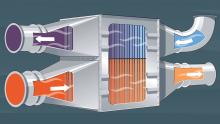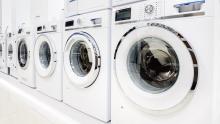Novel waste heat recycling technology delivers energy savings to industry

The industrial sector accounts for nearly a third of energy use in the EU, mostly for heat and thermal processes. Innovative technology developed by the EU-funded ETEKINA project recycles factory heat, lowering environmental impact and running costs. The research supports the EU’s goal of being climate-neutral by 2050.









